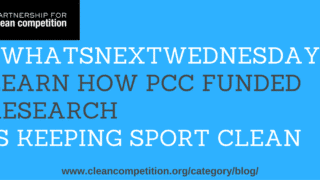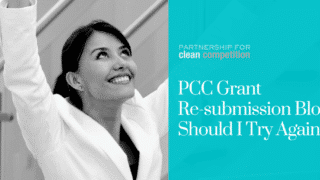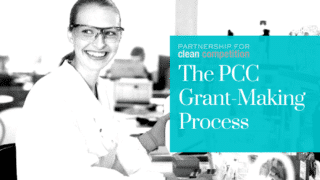The integrity of sport is worth protecting.
The science of anti-doping must be flexible enough to stay ahead of athletes and other support professionals who make the wrong choices when it comes to the use of performance-enhancing substances. Anti-doping science and research must work to protect clean athletes in a timely manner.
New substances and methods that athletes can use to seek competitive advantages are constantly emerging. Rapid responses to these threats to clean sport are essential. So too is staying ahead of the curve.
Anti-doping and other sport organizations seeking to protect clean athletes must be vigilant in unearthing and predicting agents of performance enhancement. From testing, to investigations, education, and results management, there is one common need to protect integrity of sport: that of quality scientific research.
This is why the PCC pioneered the micro-grant: funding with a quick turnaround for projects requiring less than $75,000 and fewer than six months to complete. When scientific information is needed by the anti-doping community to make policy decisions, develop tests, or produce reference materials, waiting for a formal grant cycle can be detrimental to clean sport.
PCC micro-grants can be funded in as little as one week to advance anti-doping science.
In one case, a project was funded within days to assess athlete usage of and develop a method for the detection of Mildronate. The results of the study were provided to the World Anti-doping Agency (WADA) within weeks of completion of the study, and the total project timeline was less than a year from submission of the application to publication in a peer-reviewed scientific journal
If you are a scientist with a project related to contemporary anti-doping research, submit a micro-grant for funding consideration. Please e-mail Michael Pearlmutter at mpearlmutter@cleancompetition.org with any inquiries.
To learn more about micro-grants, or to apply, click here.




